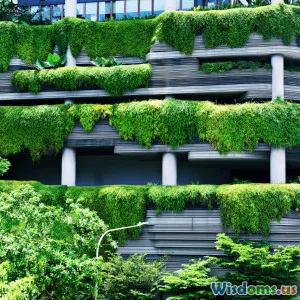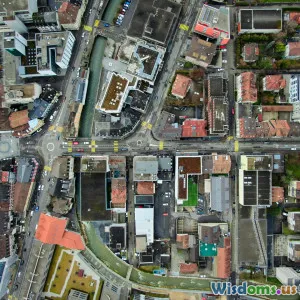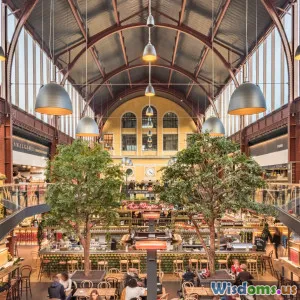
The Impact of Parks on City Life
7 min read Explore how parks enhance urban living through social engagement, environmental benefits, and well-being. (0 Reviews)
The Impact of Parks on City Life
Introduction
Imagine stepping out into a bustling city surrounded by concrete and noise. Now, picture stepping into a nearby park, with green grass, trees swaying in the breeze, and families enjoying picnics under the sun. Parks are not just serene places for leisure; they are dynamic spaces that profoundly affect urban life. They contribute to social cohesion, enhance mental well-being, and foster environmental sustainability, making them essential components of urban planning and architecture. In this article, we will explore the multifaceted impacts of parks on city life, examining their roles in promoting health, enhancing community, and shaping environmental sustainability.
The Role of Parks in Enhancing Community Engagement
Social Interaction and Cohesion
Parks act as community hubs, bringing people from diverse backgrounds together. Imagine a vibrant Saturday morning farmer’s market in a local park where families, couples, and individuals mingle, sharing local produce and stories. Research from the National Recreation and Park Association (NRPA) indicates that communities with accessible parks have higher levels of social interaction and cohesion. A study in Chicago indicated that parks provided a space for 76% of residents to engage with one another more meaningfully.
Cultural Events and Activities
Parks also serve as venues for cultural events that celebrate the diversity of city populations. Events like outdoor concerts, art fairs, and community sports leagues deepen neighborhood bonds and create a sense of belonging. For instance, Scotland's Holyrood Park houses the annual Edinburgh Festival, exposing millions to the city's artistic culture while physically gathering diverse communities in one spot.
Health Benefits of Parks on Urban Dwellers
Mental Health and Well-being
The act of escaping to nature provides significant mental health benefits. Studies by the University of Exeter found that individuals living near green spaces reported lower stress levels and improved overall happiness. Outdoor parks with natural elements give urban individuals a break from the often overwhelming urban environment.
Physical Health and Fitness
Regular access to parks encourages physical activity, which is vital to combating the obesity epidemic affecting urban populations. The Centers for Disease Control and Prevention (CDC) reported that neighborhoods with parks see increased levels of physical activities, including walking, jogging, and biking. In San Francisco, a city known for its numerous parks, fitness activity is reportedly 18% higher than in areas lacking green spaces.
Environmental Sustainability and Parks
Urban Cooling and Biodiversity
Parks play a critical role in improving urban biodiversity and mitigating heat effects in city neighborhoods. Trees, shrubs, and plants absorb CO2 and produce oxygen while providing shade that cools the surrounding air. A report by the U.S. Forest Service highlighted that areas with more tree canopy can have summer temperatures reduced by approximately 5 to 10 degrees compared to high-density urban areas.
Green Infrastructure and Stormwater Management
Urban parks can function as green infrastructure. They help manage stormwater runoff, improving water quality while preventing flooding. For example, New York City’s High Line integrates water-permeable materials, minimizing runoff, effectively showcasing how parks contribute to city life beyond aesthetic pleasure.
Parks as Economic Drivers
Increase in Local Property Values
Well-maintained parks raise property values nearby. The National Association of Realtors states that homes within a 10-minute walk of a park can see property values rise more than 10%. This can lead to increased tax revenues and boost local economies.
Attracting Tourism and Commerce
Local businesses thrive near parks. Cafes and boutiques near Hyde Park in London boost the economy by attracting tourists and locals alike. Parks, like Central Park in New York, can generate millions in revenue through tourism and related small businesses. Visitors, when drawn to urban green spaces, contribute significantly to local economies.
Planning and Designing Accessibly
Integrating Parks into Urban Design
Effective urban planning integrates parks within residential and commercial areas. A case study in Copenhagen, Denmark, where parks are accessible within a 15-minute walk from most homes, shows significantly higher engagement levels in community activities and overall satisfaction among residents. Park accessibility promotes healthier lifestyles, fostering a more engaged citizenry.
Equitable Access to Green Spaces
However, the realization of these benefits relies on equitable access to urban parks. Cities must ensure that low-income neighborhoods do not remain underprivileged regarding park accessibility. Initiatives like “Parks for People” recognized the gaps in accessibility and aimed to close these inequalities.
Conclusion
The impact of parks on urban life is profound and multifaceted. They are more than green islands; parks enhance community engagement, offer significant health benefits, promote environmental sustainability, and drive local economies. City planners and architects should prioritize the development and maintenance of parks to foster vibrant communities and improve overall urban health. The balance of nature in city planning enhances not just the aesthetics but the well-being of urban dwellers—creating a lasting legacy for future generations. The push for a greener city isn’t just a pipe dream it should be a series of actionable steps taken by all invested parties, paving the way for communities that thrive politically, socially, and environmentally.
Rate the Post
User Reviews
Popular Posts




















